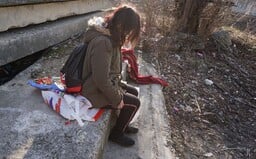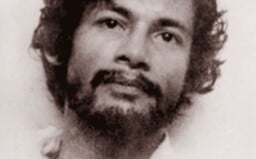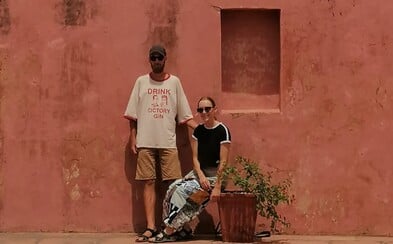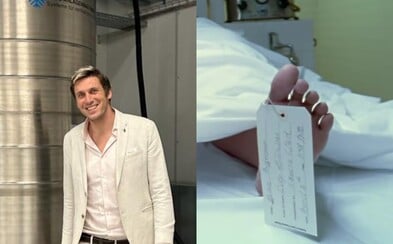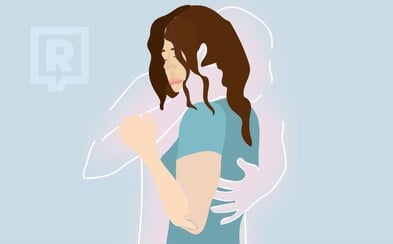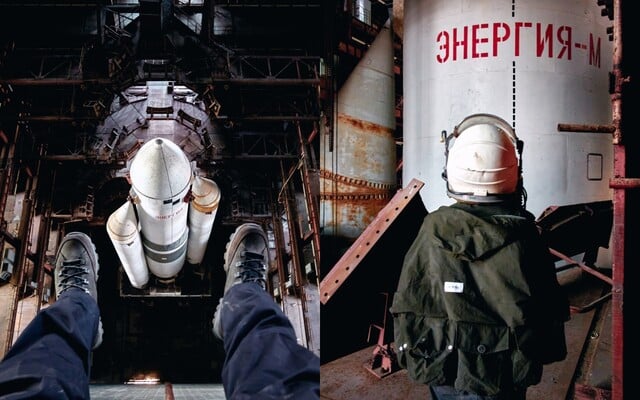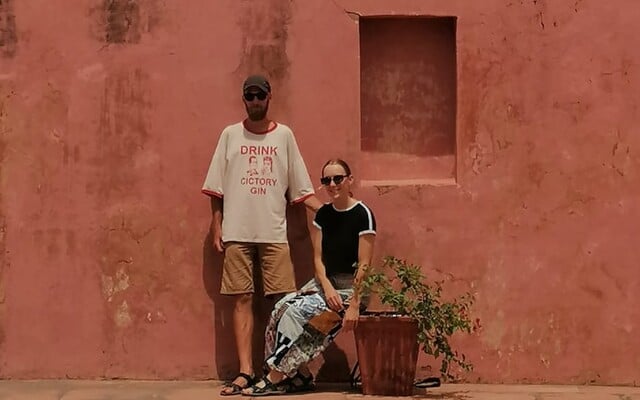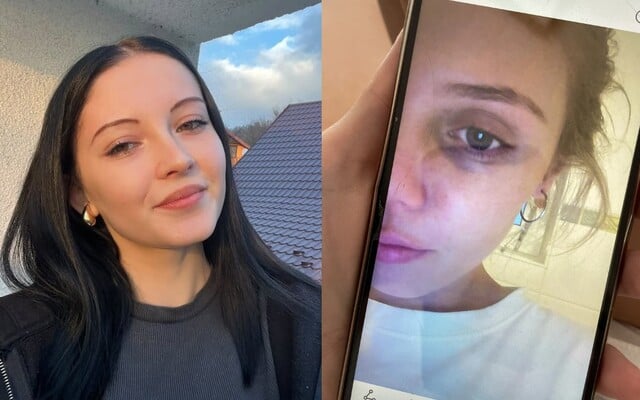 Filip visited the abandoned Soviet Baikonur Cosmodrome: The sight of the ruins of the most expensive space project is unreal
Filip visited the abandoned Soviet Baikonur Cosmodrome: The sight of the ruins of the most expensive space project is unreal
Filip visited the abandoned Soviet Baikonur Cosmodrome: The sight of the ruins of the most expensive space project is unreal
Filip visited the abandoned Soviet Baikonur Cosmodrome: The sight of the ruins of the most expensive space project is unreal
She Met Him On Tinder, Got Raped In His House: I Used to Blame Myself, But Now I Know Better (Interview)
Zuzana Prostredníková openly talked about her experience with rape for REFRESHER. She describes how it affected her life and claims that if we had proper sex ed, this wouldn't have to happen.
If problems persis, please contact administrator.
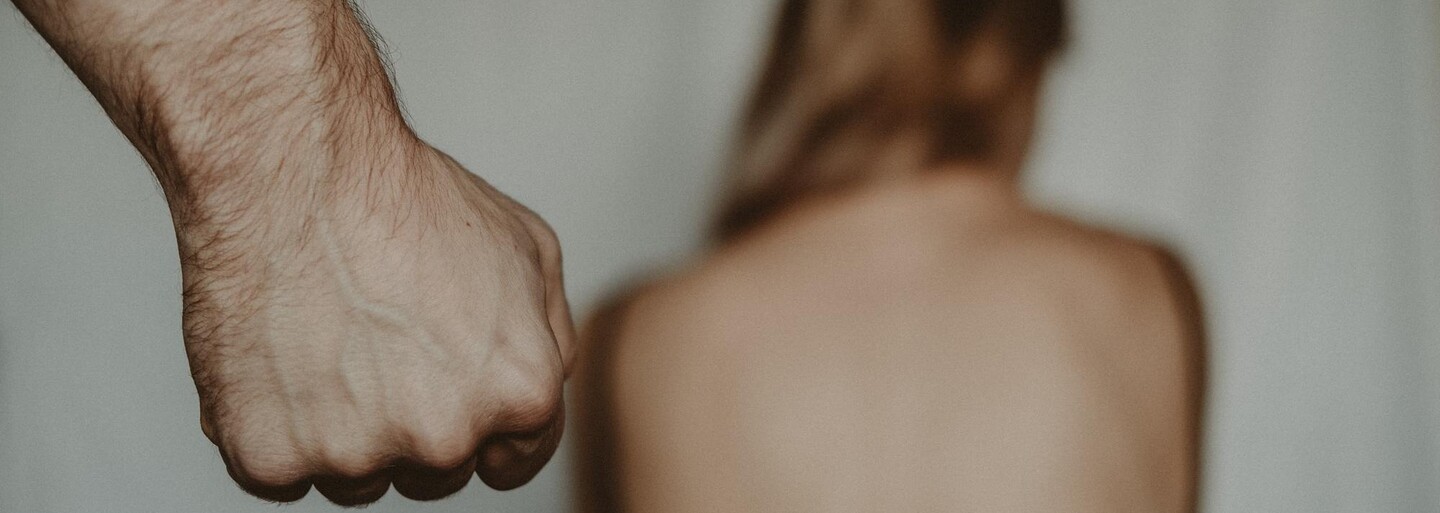
"Sex is something that needs to be discussed in our society. I wasn't against it before, but after my experience with rape, I've internalized it. That is the reason why I wrote the post at the time, and the reason why I am also doing this interview, " Zuzana Prostredníková told us openly during an online video call, joining in from her Brussels office.
Zuzana was raped a few years ago. It wasn't a typical movie-like scene: she wasn't dressed skanky in a sketchy part of town, an intoxicated rapist didn't jump out of a dark corner. It happened during a Tinder date, pleasant at first, but things went sideways from one minute to another. Although she wanted to leave, the man physically prevented her from doing so.
It took almost a year before she was able to talk about it for the first time. And ever since then, she didn't stop. She has managed to turn her experience into an opportunity to voice the need for sexual education in Slovakia and beyond. In an interview for REFRESHER, she describes her experience with sexual violence, and explains how it affected her life afterwards.
- How the rape occurred and why it took her 9 months to admit that it was, in fact, violence.
- Whether she reported to the police and how the family and friends reacted to it.
- What influence did the rape have on her future relationships and whether she continues to use Tinder.
- Why she spoke up about her experience during a March for Life and how it relates to abortions.
At the beginning of the interview, you've told me that you're at peace with the experience now and you are able to talk about it. Can you tell me when did the rape take place?It happened right after school, in 2017. It was a Tinder date in Vienna and I was already living in Bratislava at the time. It was our first date and we met at his house. This is also one of the reasons why I didn't deal with it for so long - I was convinced that I was stupid and that I have gotten myself into it.
In the sense that you've accepted a home invitation from someone on Tinder?
Yes. But the fact that it's Tinder doesn't justify anything. It is not a parallel universe, it's exactly the same kind of encounters that would arise from other types of circumstances. Mutual respect should also apply.
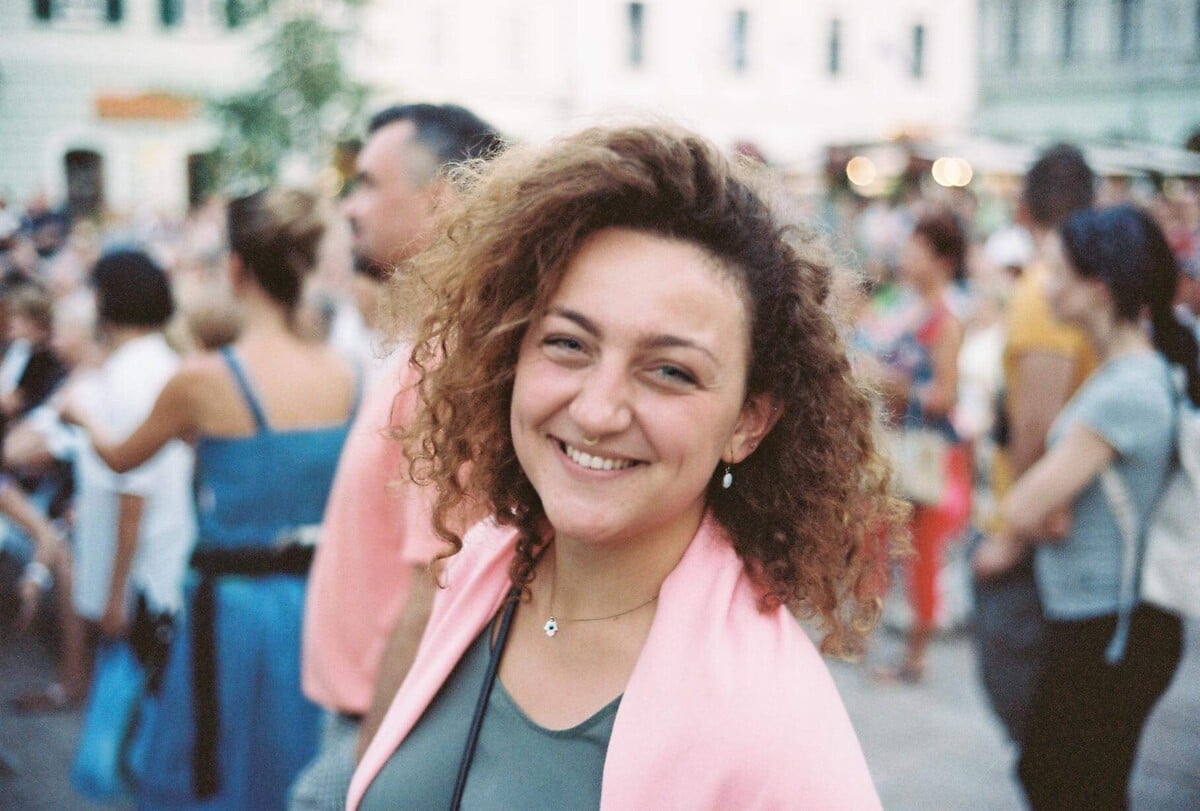
How did the date go initially?
We talked, drank something and after a while it came to intimacy. I agreed with it at first, but it went wrong quickly.
What do you mean by wrong?
Without any agreement or setup, the man initiated anal sex. Without protection, or preparation, simply with violence. I immediately said that I wanted it to end, but he didn't listen to me. He continued and later there was vaginal sex, also without protection. I was paralyzed, then I've left, deleted him from Tinder, and didn't contact him anymore.
Did you report it anywhere?
No.
Did you avoid Tinder or other dating sites after that?
I've ignored it for a long time. When I moved to another country, I started using it again, more for meeting new people. Which later turned into a relationship, but that was on another level. It didn't stop me from using Tinder, I just knew what to look out for and how to be more careful.
How did your approach to relationships change? Are you more careful or sensitive to warning signs in men?
I've built up self-confidence, so I'm no longer afraid to say "I don't feel like this" or "I don't want you to do this."
When you say self-confidence, do you mean self-knowledge, being aware of your needs?
Yes, but I also mean the guts to respond. I'm no longer afraid of insulting the other person by saying no. It's not about suffering what the other person wants in order to make them happy - because then it will catch up to you. Whenever I was in such a situation and half-agreed to something, it reflected on the relationship and on myself as well.
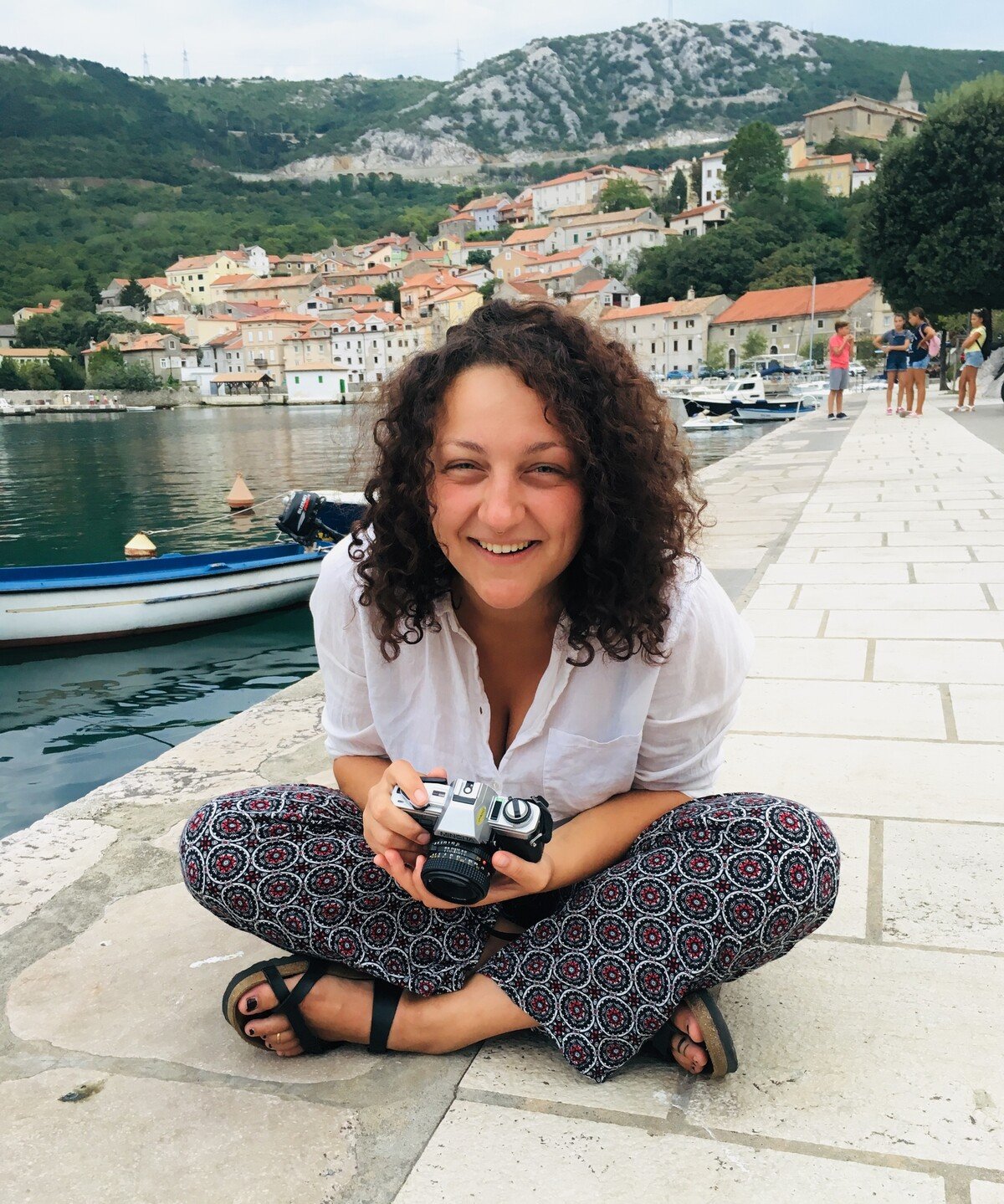
You said that long after this experience, you thought it was your fault. That you've "brought it upon yourself". When did you admit to yourself that it was actually rape?
For about nine months, I've felt guilty. I didn't tell anyone during this time. I said to myself I was stupid, ashamed to tell anyone.
I've always felt bad about that interaction. Thanks to a close friend of mine, I realized I had experienced violence and that it was not my fault. She has been very supportive and told me that it was not okay.
Some time after this realization, you've spoken up about your experience publicly. How did your surroundings react to it?
My parents were disappointed - with themselves. They were sorry, that I had such an experience, of course, but they were disappointed because they didn't feel the need to talk about such things. I have a very good role model in my parents, we have always talked about relationships, but only to a certain extent.
Even their experience with relationships is different than dating on Tinder. We have not talked about such things or violence, but I do not blame them. I don't think there is any explicit consensus debate in any family, no matter how open-minded the parents are. It is kind of automatic, because of course, both parties must agree.
Consent is being mentioned more and more these days. Voluntary consent that someone gives without physical or psychological pressure. Looking back, do you think the man understood that you don't want to continue in sex, and that the consent is missing? Could it be that he misinterpreted it?
Yes, I have made it very clear to him that I wanted to leave. But even then I felt paralyzed, which is not something I can influence. I would very much like to imagine that it is possible: to kick someone and just leave, but that's probably not how it works.
I feel that he understood me. It's always possible to argue about what does and what doesn't count as rape. Who's guilty for which part and so forth. To me, the core of the problem is that even though I have felt violated, the society or my upbringing did not sufficiently prepare me to recognize it in time, react to it and solve it within myself. Or turn to someone else.
How did you react when you asked the man to stop and he ignored it?
I thought that this probably happens. That's exactly the learned reflex. Now, after several years of experience, I know this ain't right. In an ideal world, I would identify this as real rape much earlier.
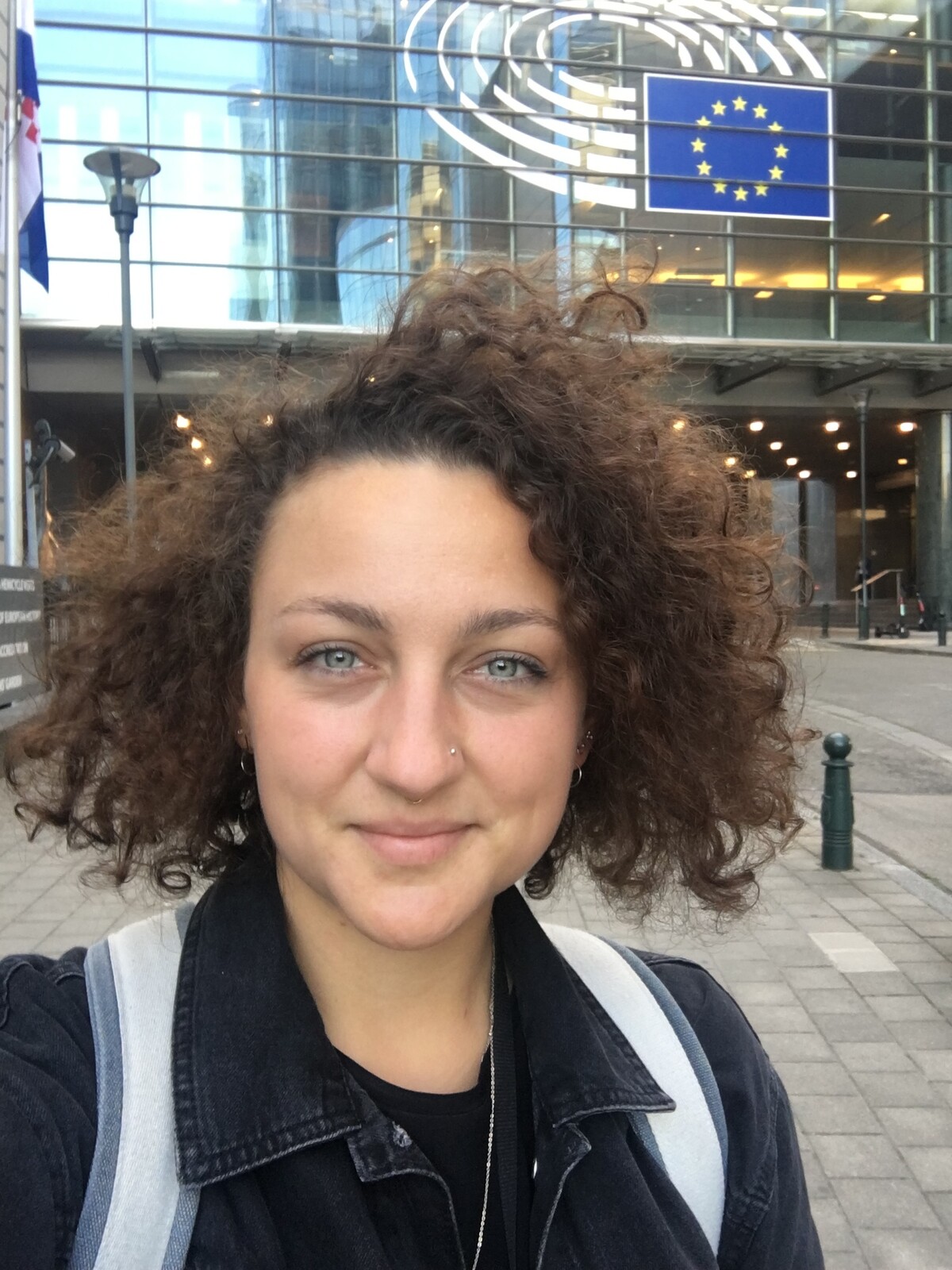
So, speaking of consent: where do you see space for discussion or education on consent? Is it purely a family matter or is there space for it in schools and perhaps even church?
I would like to think that this is part of the parental preparation of their children for the world. But we cannot expect this from parents that grew up in an environment with no need to talk about consent. That is a generational distinction for which society cannot expect them to teach their children.
Therefore, I would point the finger at schools, because it is an institution that we can systematically influence. As a society, we can determine what children will learn there. But the changing moods and opinions within society, what we consider normal or right today, originates also from the media, for example. The consent must gain space in the public discussion, in the form of articles, interviews and the like. Then friends and parents will start talking about it with their children.
What did your sex education look like? You've mentioned that at the moment, you didn't recognize that it's a form of violence... So what did you know about sex and sexuality?
I went to an evangelical elementary school and an evangelical high school. Within religious education, we had a short series of lessons, where we talked about sexually transmitted diseases and contraception, which I think is quite progressive for a christian school. It was neutrally explained and we've talked openly about different types of protection. However, this is usually the point where sex ed and debates around it end: disease and protection.
But it's just the first step.
What else should be covered by sexual education in your opinion?
The dynamics of relationships, the position of both partners and the consent. In my opinion, more emphasis needs to be placed on self-esteem. To me, it's a societal disease that won't be solved by one hour of sex ed. At least from the girl's point of view.
Do you mean within the relationship dynamics? So that with a low self-esteem, one wouldn't speak up in case something is bothering them?
Yeah. At least that's how I feel about it. Only with age did I develop thicker skin.
That's what consent is about, in my opinion. I know where my boundaries are, and when someone gets close to crossing them, I can defend myself. And it doesn't necessarily have to be sexual violence, it can be an unwanted hug or touch. Something that comes with self-esteem: I know I won't offend the other person just because I refuse a hug. I don't have to be aggressive about it either, it can be said in a nice way.
Are you missing anything else in the discussion about consent?
I think that many people in relationships don't even realize the acts of violence that are committed on them. It sounds weird, but we're desensitized to it. That's why I think we need to talk about it thoroughly and not just pay attention to extreme cases exclusively. Of course, they happen too, but the consent should become part of any human interaction.
How do you define consent?
Let me give you an example from my private life. I'm currently seeing a man who is not Slovak, and at first I did not explicitly understand his level of respect - in a good way. For example, when kissing, he'd ask me if he may take my shirt off. It was the first time something like this has happened to me, but he was obviously brought up in a different way. This issue is apparently much further in the society where he was raised. Asking for permission is a no-brainer to him.
However, some people would still object, claiming that asking for permission every time can spoil the mood.
It doesn't spoil the mood. I fell in love with this behavior and I think it's a necessity. The consent is not just about waiting for someone to say no. On the contrary, I demand a "yes" to everything.
How do you feel about Slovak laws in the context of rape? According to the current legislation, you can only rape a woman and it is considered a rape only in the case of physical force, threat of direct violence or abuse of the woman's vulnerability. Would you personally change anything about that?
I admit I do not follow it in such detail. However, it is based on a very basic understanding of violence. I didn't deal with it legally, so I have no experience in this matter. But I do notice the general mood of society in the context of rape on a daily basis. There is a lack of discussion, not only about sexual violence, but also sexual education and consent in general.
The first time you spoke up about rape was in the context of the March For Life. You've criticized the lack of sexual education and preparation for recognition of dangerous and violent situations. What bothers you the most in the way sexual violence is addressed recently?
The most problematic thing is that it's constantly compared. Apparently it's different when you walk home and someone jumps out on you from the bushes. I don't want to belittle these experiences or make a difference between them. It is about individual perception and that it is not talked about in the society.
We're not talking about violence amongst partners, as if it didn't exist at all. When you're partners, it can't be considered rape, right?
The society-wide debate was focused on abortions at the time. In the blog that you've published, you're admitting that you understand why this option should continue to be available for women. What propelled you to speak up?
I was angry at the one-sided rhetoric about abortions, and I was lacking more specific personal stories. I did write it more aggressively than I would today.
It bothered me how these things were talked about. I wanted to point out that we can't even pretend to have any sexual education for young people here. I was missing that element in the whole discussion.
According to your own words, you never thought about agreeing to abortion when growing up. You didn't dismiss women that did, but you didn't think this could ever concern you personally. How did the experience with rape affect you in this regard?
It was the first time I was actually afraid of being pregnant. I admitted that I would definitely go for an abortion if that was the case. Not just because it was a violent act. Even if it wasn't, I think I would have taken the opportunity.
In my opinion, there is no need for an abortion campaign. The numbers are declining on a yearly basis. Either way, we can not limit that possibility. It has to be respected if it is not in accordance with one's faith.
I think it's a bit of a challenge for the church to not ridicule and humiliate those who choose abortion. When a few thousand people basically shames the women who have made that decision, it ain't right. The church should not be so offensive to women who decide to abort.
Has your worldview changed in any other way after your experience with violence?
Sex is something that needs to be discussed in our society. I wasn't against it before, but after my experience with rape, I've internalized it. That is the reason why I wrote the post at the time, and the reason why I am also doing this interview.
I've healed pretty well. I'm sorry if I think too much about it, I don't feel the best, but I'm also not traumatized. I have a solid support system around me. So I take the opportunity to talk about it and react to these issues in our society.
I talk very openly about sex with my loved ones. It should not be a taboo, which is also why I like sex education podcast initiatives, for example.
You were brought up in a family of evangelical pastors, in a very christian setting. Do you feel any change in the way your family talks about sex at home ever since your experience?
The pastors in my family have always had very open views, they could even be described as liberal. I had more conservative friends for a few years, and some currents in the church (camps, youth meetings) were more conservative. However, I am not currently an active member of any church in Slovakia.
I studied in Scotland, where I also went to church. However, the christians there are much more progressive. The Church of Scotland has more progressive views overall, for example, on LGBTI people.
I honestly don't know what the reaction was in the case of someone from church who may have heard about it.
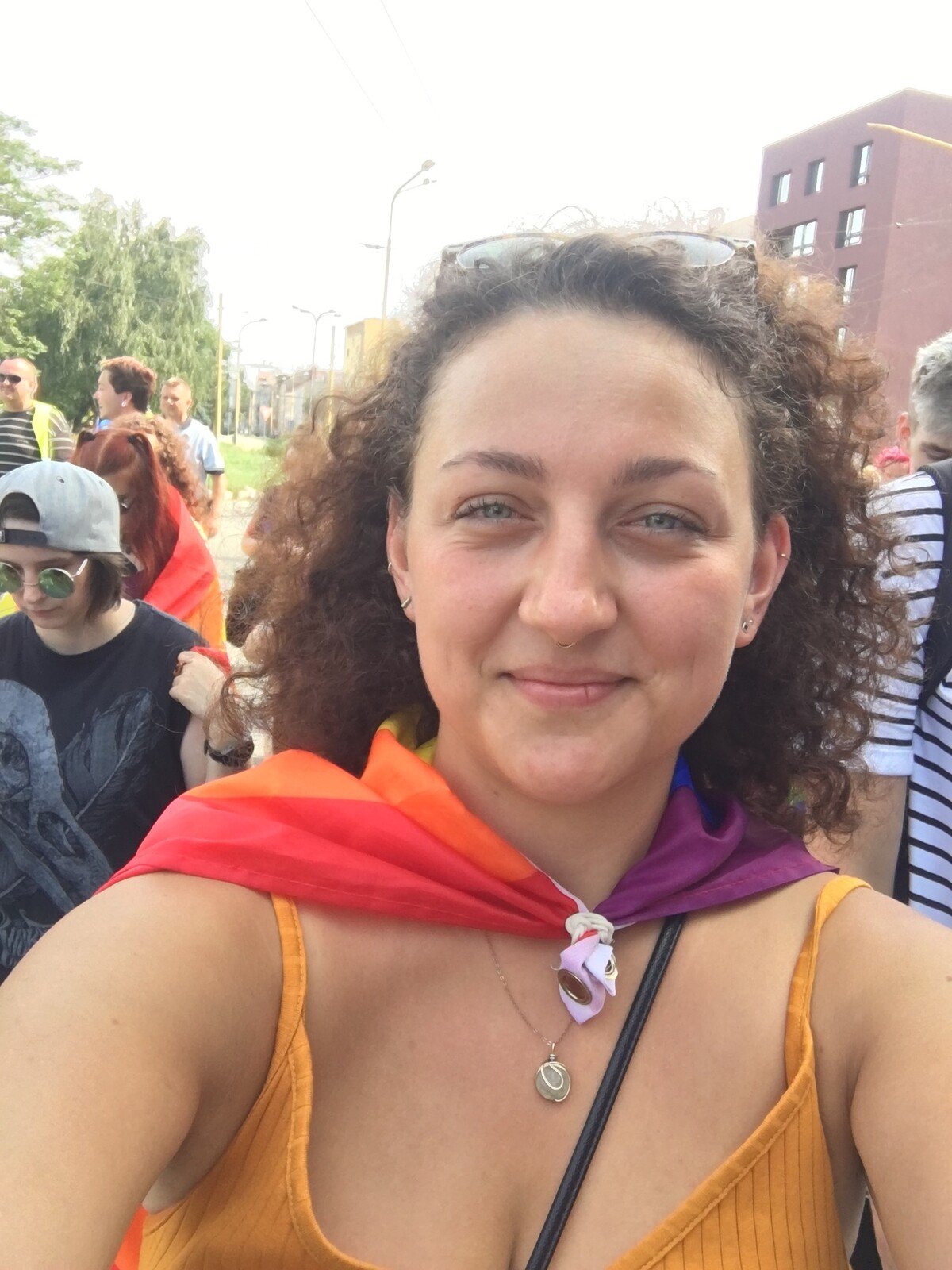
How does this experience affect your life now? Are you afraid of men?
No. I feel completely healed, if I can call it that. I've got a healthy view of men and I aim for healthy relationships.
Do you talk about it with men whom you're dating? When?
Yes, I do, but I talk about it regularly even with my friends. I would say it's a topic that I'm aware of and that's why we're discussing it.
How do men react to it?
The men that I've met ever since then have been very understanding. I do not feel that it would create some sort of stigma or that they'd have a problem or worry about it. It's more about building trust, maybe they'll be more considerate. But I don't think it changes the relationship for better or worse. The man either inclines towards proactive respect or he doesn't. This information won't change it. If it does change, they're only pretending in order to impress me.
It happened abroad. Do you now feel fear when crossing the border?
Not at all, I don't even think about it.
If problems persis, please contact administrator.


